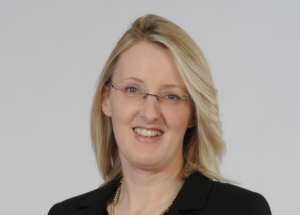Giving credit where credit is due
- 6 Min Read
According to the World Bank, financial inclusion is growing on a global scale, with over 515 million people setting up bank accounts between 2014 and 2017 alone. With alternative methods such as ‘salary links’, low-income workers are offered access to credit. However, challenges still remain.
- Author: Ross Davies
- Date published: May 17, 2018
- Categories

According to the World Bank, financial inclusion is growing on a global scale, with over 515 million people setting up bank accounts between 2014 and 2017 alone. With alternative methods such as ‘salary links’, low-income workers are offered access to credit. However, challenges still remain.
In the 7 years since the World Bank produced its first Global Findex Database in 2011, 1.2 billion people have obtained personal bank accounts.
Indeed, the number of the “unbanked” has been falling for some time now. According to the latest Findex figures for 2017, over 515 million people worldwide have set up bank or mobile-money accounts since the triennial report was last published in 2014.
In the pursuit of greater financial inclusion, such figures are certainly encouraging. Could it be that new innovations in the financial technology space are starting to be bear fruit in meeting the needs of underserved populations?
The West
In a recent report by the Harvard’s Mossavar-Rahmani Center for Business and Government, over 50 million Americans from low-income working schools are described as “financially stressed”.
For this particular demographic, the problem is not so much earning an adequate crust to pay the bills, but the struggle to manage cash flow – especially at the hands of financial “shocks” and “timing mismatches”.
With a lack of savings to sustain these shocks – such as a sudden rent hike, or an unexpected medical bill – many American families at the lower end of the economic ladder are turning to shady payday loan lenders, claims the report. Such recourse rarely ends well, with families often falling into a vicious circle of taking out further loans to meet extortionate interest rates.
The paper posits “employer-sponsored fintech benefits” as a way of tackling these stresses, such as providing employees with poor credit access to “traditional financial products”, increasing financial inclusion in the process. These products could encompass anything from short-term loans and emergency savings accounts to online and mobile financial management apps.
“Our research shows that employer-sponsored fintech-based benefits that take advantage of the powerful ‘salary link’– automatic repayment through salary deduction – and provide more efficient, less costly and more inclusive liquidity and credit solutions for working American families,” reads an extract from the report. Large employers can offer these schemes to employees today without needing a change in law with borrowers ending up with a significantly lower cost.
The report examined a short-term instalment loan from fintech firm Salary Finance in the UK. For example, an employer can offer a Salary Finance loan to the borrower with a 480 to 500 US FICO score on an 11.8% annual interest rate, a credit score which is much lower than a standard loan. Salary Finance will always get repaid if the employee remains within the company and similarly, employees tend to stay at a job which repays eight or nine times the value of their loan.
Another example is PayActiv’s “early wage access product”, which gives employees access to an unpaid salary through an app, again at a much lower expense than the usual overdraft or payday loan.
According to the report, “these fintech products also show tantalising potential for significantly reducing employee turnover and savings millions of expense dollars annually at large employers. Importantly, deployment of employer-sponsored fintech benefits does not require changes in law or government intervention to be successful”.
Developing markets
Setting the West aside, there is evidence of a growing appetite in emerging nations for finance-driven economics, giving rise to greater inclusion. In 2014, India launched a national programme to help citizens gain easier access to bank accounts, as well as credit and insurance.
As of November 2016, 307 million new bank accounts havebeen opened through the scheme, with the Reserve Bank of India targeting 600 million new accounts by 2020, facilitated by mobile banking.
There are hopes a similar success story might be enjoyed across the border in Pakistan, where only 24% of adults are reported to own a bank account. But with its large population (around 210 million people) and a corresponding number of mobile phone users (there are 146 million registered accounts), the country is ripe for new opportunities.
Speaking to the Economist in May, Kosta Peric, deputy director of financial services for the poor at Bill and Melinda Gates Foundation – which assisted in funding the first Global Findex Database – predicted Pakistan to be on course in becoming “the first fully connected and inclusive economy”.
It’s a bold prediction. Access to a bank account doesn’t necessarily translate into activity and financial inclusion, with around a quarter of accounts across the world believed to be inactive, according to the Findex report.
Even India’s much-lauded inclusion programme suffered teething problems when it soon became apparent that people were maintaining zero-balance accounts, taking out their entire salaries in preference of cash in hand.
Nonetheless, the Indian government got wise to the practice and implemented measures which saw the rate of zero-balance accounts drop by over 35% between 2015 and 2017.
There are also concerns that financial institutions, banks and mobile operators might seek to take advantage of people with little-to-no previous experience of money management.
Writing in a joint op-ed in the Financial Times back in February 2016, Rupert Scofield, co-founder of financial services NGO FINCA International, and group CEO Andrée Simon, warned of a “stampede of casualties” at the hands of irresponsible lending.
“The headlong rush by traditional commercial banks and mobile network operators, or MNOs, to lend more money to more people – many of whom have little or no previous experience managing even modest sums of money – might also overextend those customers with debt and turn them into ripe prospects for predatory practices,” they said.
In order to help people avoid these pitfalls, and for financial inclusiveness to truly thrive, education remains key. Keen fiscal literacy rarely comes about overnight but more from experience and advice from financial institutions. Technology also has the potential to not only process payments but disseminate this knowledge.
The notion of a financial inclusion revolution has been much vaunted for some time now, framed especially in an economic context but one shouldn’t forget the potential to combat poverty and boost income equality.
Join HRD Connect and Salary Finance for a webinar on 31 May and learn how you can help your people and business thrive through financial wellbeing.




